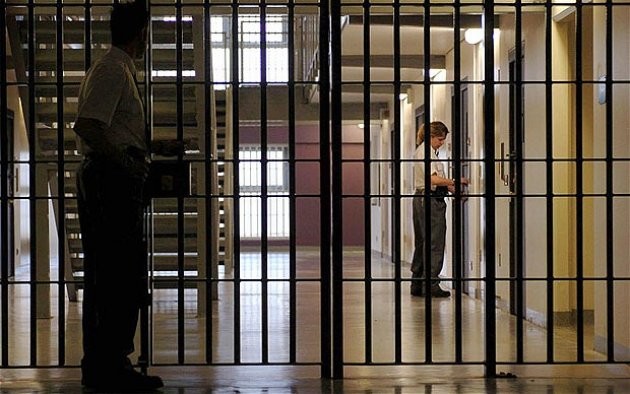Some 117 out of a total of 316 Kosovar citizens who went to war in Syria since 2012, have returned for different reasons.
Sociologist Sibel Halimi, criticizes the government for the absence of campaigns against terrorism, and of reintegration programs. She considers that programs should be psychologically and sociologically designed for those who have returned for various reasons, she maintains.
“We’re not required to invent hot water, there are models in other countries on how the process of de-radicalization should be built”, Halimi says.
The legal framework of the Republic of Kosovo sanctions penalizing measures for returnees from wars in foreign countries. The returnees from the Middle East, for whose participation in fighting the authorities are aware of, are usually put under custody until the end of the legal procedure, and ultimately may be sentenced from 5 months up to 15 years of prison.
According to the authorities, since 2013, Kosovo Police has initiated investigations against 237 people, with 127 arrested and around 40 sentenced for their participation in wars in the Middle East, or for having ties with terrorism.
Skënder Përteshi, researcher at Kosovar Centre for Security Studies (KCSS) considers that the imprisonment only brings about the risk of the radicalization of other prisoners who have been sentenced for whatever criminal act. According to him, prison abets a the spread of the ideas and the creation of the bases of a powerful organization.
“What`s the point of putting 100 persons in prison and coming out with 300 radicalized individuals”, Përteshi says.
That the imprisonment may bring with it the threat of radicalization of other prisoners, sentenced for other criminal acts, and that prison does not help the de-radicalization of these persons given the absence of a program for their integration in the society, is not an isolated perception within the civil society.
According to the security barometer that KCSS published in June 2016, 54% of the respondents were in favor of the re-integration of those individuals, 24% have said that these individuals should be arrested for they pose danger on society, whereas 16% think that they should be banned from entering Kosovo.
Journalist and editor-in-chief at daily “Zëri”, Arbana Xharra, considers that in prisons they deal more with “radical Imams”, who could use the opportunity to radicalize other prisoners.
On the other hand, she criticizes authorities for not dealing with families who have at least one member in wars in the Middle East since they risk being marginalized by society.
The re-integration and re-socialization, according to Xharra, should be more wide-ranging and differ to fit specific needs of various regions.
“Prishtina differs a lot from other municipalities or villages. Groups that are giving signals and have not necessarily gone to Syria and Iraq, should also be re-integrated”, Xharra says.
Burim Ramadani from Security Policy Research Center (SORC), considers that Kosovo has created a quite good legal framework against terrorism, even though it could get improved.
“In this challenge, Kosovo has not clarified its program or its idea of how it will deal with re-integration and re-socialization of the individuals who have already been radicalized or are currently are in war zones”, Ramadani says.
Arife Muji, researcher at KCSS, says that Kosovo citizens are not aware of the process of re-integration and what this process constitutes.
Since Kosovo lacks experts with experience in this field, Muji considers that the re-integration programs of other European countries who had a certain degree of success, should be taken and adapted to Kosovo`s legal framework and circumstances.
“Government of Kosovo has expressed its willingness to design re-integration programs”, she says, adding that experiences of other countries have been analyzed.
The re-integration programs of these countries usually are divided into several stages. Initially, it includes the rehabilitation of the radicalized individuals inside prisons, where with the help of Imams are being taught on the differences between extremist ideology and genuine belief, and where psychologists determine the approximate level of their radicalization.
This is followed by the process of re-integration, with the use of in-formal religious education, since no such education exists in schools.
“Correctional centres should become more attractive, in order to give a hope to these individuals who are in preparatory stage of the returning to times when they were not radicalized and not affected by violent extremism”, Muji says.
Since it is almost impossible to know if these persons have really been de-radicalized, the third stage is necessary, in which the de-radicalized individuals should be monitored by the police until there are ample indicators that they have managed to finish the process successfully.
Muji also adds that since these radicalized individuals have returned for different reasons, they should be categorized, so that appropriate measures could be set for them. Some of the returnees have repented their actions, are aware of being wrong, and have agreed to give up on those ideologies. Some others, even though regretting for participating in war, have still not given up on extremist ideas, and there are also those who have returned for unknown reasons that may be used to indoctrinate others.
Serbeze Haxhiaj, journalist who wrote extensively about religious extremism, considers that new policies should be implemented for the de-radicalization of the returnees from the wars in Middle East and their families. She says that during her investigations, she saw “radicalization signs of the family members of those who died in the wars in Middle East”.
Bulza Çapriqi








